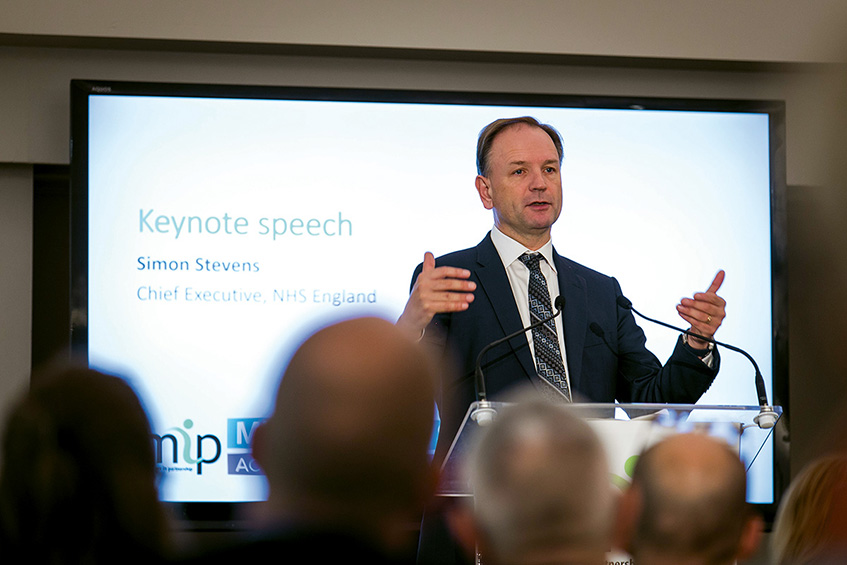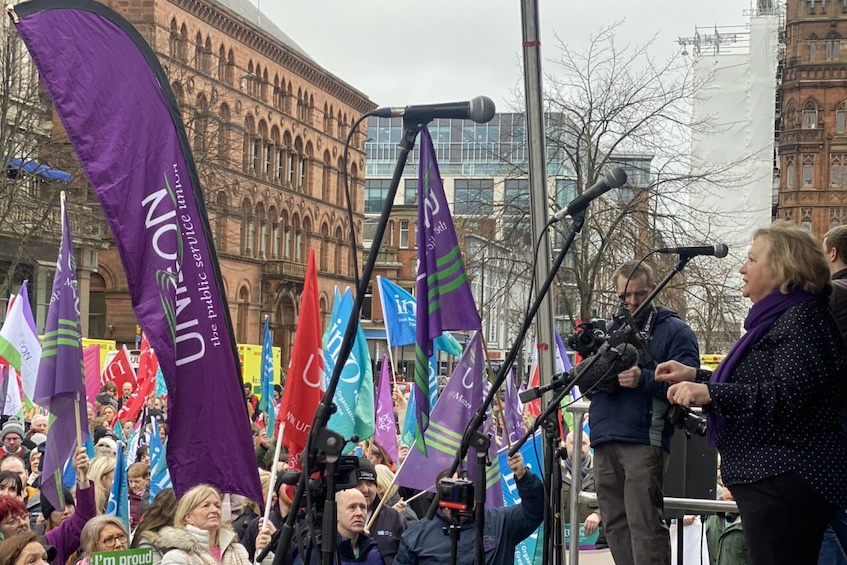MiP calls for open competition for Stevens’s successor

Responding to the announcement that Simon Stevens will be standing down as head of NHS England, MiP chief executive Jon Restell said:
“Sir Simon has been a good servant of the NHS. He used considerable political skill to lift money from the reluctant hands of politicians practising austerity. He has also ably set a strategy for integration and place-based planning of health and care services, which commands support across the political spectrum – and within the NHS itself.
“The government must appoint Sir Simon’s successor through an open, competitive public service appointment process. The public do not want the head of the NHS to be a largely political appointment.
“The post of NHS England chief executive is one of the biggest jobs in public service, responsible for over a million staff and a budget of more than £150 billion. The NHS is massively important to the public and has huge social and economic significance. Running it requires considerable leadership skill, health service experience and managerial expertise.
“For this job, we need to find and test the most qualified candidates in a global and diverse field. The NHS strives for best practice in its recruitment practices and this should start at the top. In the current climate of concern about public service appointments, the new chief executive will need the authority and credibility that can only come from an open competition.”
|
MiP has welcomed moves to speed up pay progression for Band 8 and 9 managers and tackle long-standing problems with the Agenda for Change pay system that deter staff from seeking promotion.
23 September 2024
| By MiP
News
|
|||||
|
MiP has welcomed a 5% pay rise for very senior and executive senior managers in the NHS in England, after the UK government accepted the latest recommendations from the Senior Salaries Review Body (SSRB).
09 September 2024
| By MiP
News
|
|||||
|
MiP has welcomed the 5.5% pay rise for NHS staff on Agenda for Change as “a notable shift” and a “good starting point” for future negotiations.
04 September 2024
| By MiP
News
|
|||||
|
The health secretary’s plans to cut 5,500 management jobs to fund community services if the Conservatives win the general election have been criticised as “not credible” by Labour and “paper thin” by MiP.
25 June 2024
| By MiP
News
|
|||||
|
After months of industrial action, NHS workers in Northern Ireland have accepted a 5% pay offer for last year negotiated by health unions and the Department of Health.
05 April 2024
| By MiP
News
|
|||||
|
MiP alongside 13 other health unions have called for an above inflation pay rise for all NHS staff.
12 February 2024
| By MiP
News
|
|||||
|
Help MiP and UNISON prepare for the 2024 pay round by taking part in our survey on NHS pay. It only takes a few minutes.
18 December 2023
| By MiP
News
|
|||||
|
MiP and 13 other NHS unions announce they will not submit evidence to the NHS Pay Review Body for the 2023 pay round while industrial action is ongoing.
11 January 2023
| By MiP
News
|
|||||
|
MiP is launching a ‘Sounding Board’ and a new survey to gauge the views of its board-level members and help the union prepare evidence for the 2023 pay review body report.
22 December 2022
| By MiP
News
|
|||||
|
A majority of the public believe an above-inflation pay rise for NHS staff would be fair and workers would be justified in taking strike action if this year’s wage increase fails to match the rising cost of living, according to a new poll.
18 July 2022
| By MiP
News
|
|||||
|
Related News
-

MiP responds to the abolition of NHS England
Government risk repeating same mistakes as Lansley by abolishing NHS England and cutting more staff from ICBs, says MiP.
-

NHS England and central staff could be cut by 50%, NHSE has announced
Government planned cuts at NHS England go much further than previously announced, with up to 50% of staff at risk.
-

New MiP survey shows growing support for principle of regulating managers, but warns it won’t improve patient safety
MiP’s member survey on regulating NHS managers shows managers are still not convinced regulation will improve patient safety or raise standards, despite growing support for it in principle.







